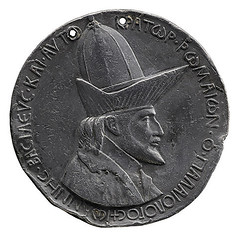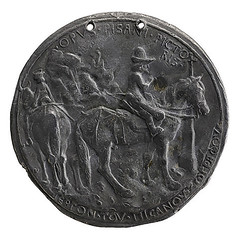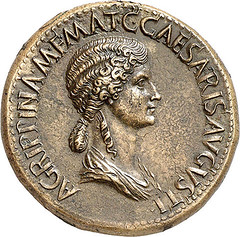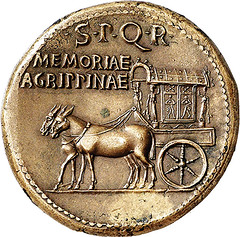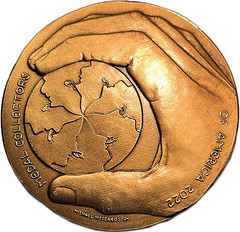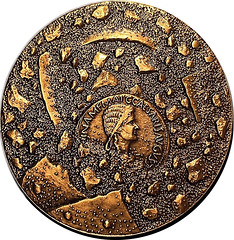
PREV ARTICLE
NEXT ARTICLE
FULL ISSUE
PREV FULL ISSUE
THE 2022 MCA ANNUAL MEDALThe Medal Collectors of America produce a great series of annual medals. Some examples of the 2022 issue are still available - here's a description from the Fall 2022 MCA Advisory, excerpted from an article by Stephen Scher. -Editor Antonio di Puccio Pisano (called Pisanello). JOHN VIII PALEOLOGUS, Emperor of Byzantium (b. 1392; r. 1425-1448). ca. 1438. Lead, cast, 104.1 mm. obverse. It is generally acknowledged that the modern medal was invented around 1438 by Antonio di Pucci Pisano, called Pisanello (ca. 1395-1455) with his medal of the Byzantine emperor, John VIII Paleologus. This sculptural innovation was one manifestation in Italy of a new attitude towards the history, art, philosophy, and cultures of ancient Greece and Rome. One important result was a new understanding of the place of man in the universe, celebrating his or her distinct individuality, character, appearance, social position, beliefs, and accomplishments, or by commemorating significant historic events in a durable, reproducible, widely distributable medium. Yet Pisanello's medals and those that followed by other artists did not, at first, physically follow the format from which they were derived: ancient coinage. Sesterius of AGRIPPINA THE ELDER (14 BCE-18 CE). Minted 37-41 CE, bronze, struck, 36 mm. obverse The Greeks had issued large commemorative coins such as the decadrachms of Athens and Syracuse, and their coinage in general achieved levels of extraordinary beauty. Roman coinage also displayed impressive quality in the portraits of Republican notables and subsequently the emperors and their imperial family members, especially in large bronze sestertii. In addition, The Romans struck equally large, monetiform pieces that were not active currency but were issued by emperors as celebratory gifts and that have later been called medallions. For Renaissance Italy, coinage, which was readily available in considerable numbers, along with many other forms of ancient art, was tangible evidence of the glories of ancient civilizations and a spiritual and ideological inspiration for contemporary artists and collectors. It is this heritage that has been chosen as the subject of the 2022 Medal Collectors of America's annual medal. The obverse displays a hand holding a contemporary medal showing a series of adjacent heads each speaking into the ear before it, thus symbolizing the effective role of the medal as a means of communication. On the reverse, referring to the inspiration of Roman coins for the invention of the modern medal, is a representation of the obverse of one of the most beautiful Roman sestertii shown amidst the dirt and shards of a pot that once contained a buried hoard. The portrait is of Agrippina the Elder (c. 14 BC-33AD). a granddaughter of Emperor Augustus, wife of Germanicus, and mother of Nero and Caligula, during whose reign the coin was minted. On the reverse of the actual coin is a carpentum drawn by mules probably containing the ashes of Agrippina. SPECIFICATIONS AND PURCHASE DETAILS
Title:
To order, see:
NOTE: there is an additional $5 Paypal fee when ordering online. -Editor
For more information on the Medal Collectors of America, see:
Wayne Homren, Editor The Numismatic Bibliomania Society is a non-profit organization promoting numismatic literature. See our web site at coinbooks.org. To submit items for publication in The E-Sylum, write to the Editor at this address: whomren@gmail.com To subscribe go to: https://my.binhost.com/lists/listinfo/esylum All Rights Reserved. NBS Home Page Contact the NBS webmaster 
|
